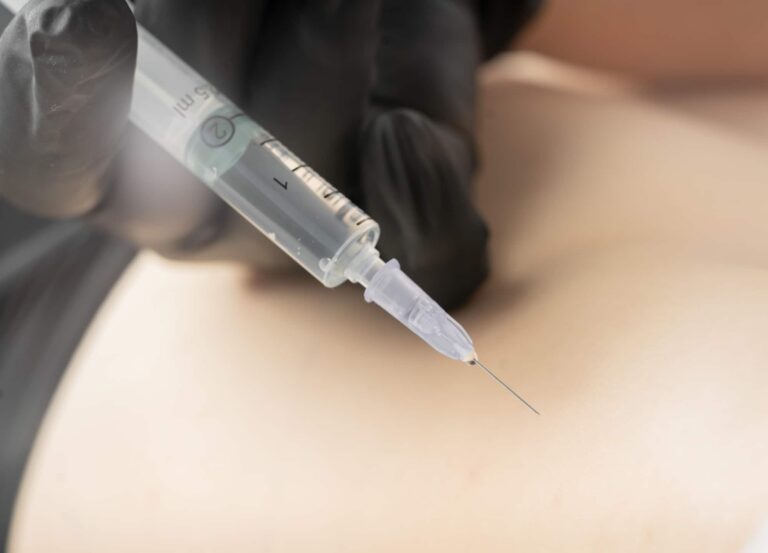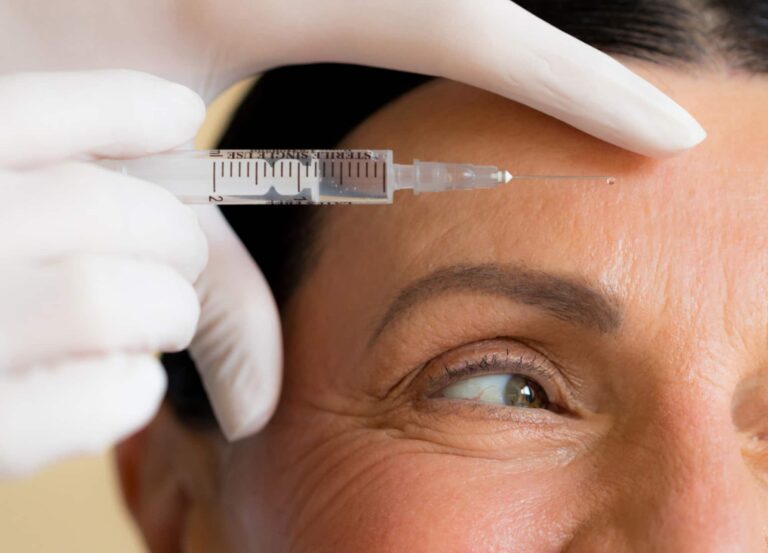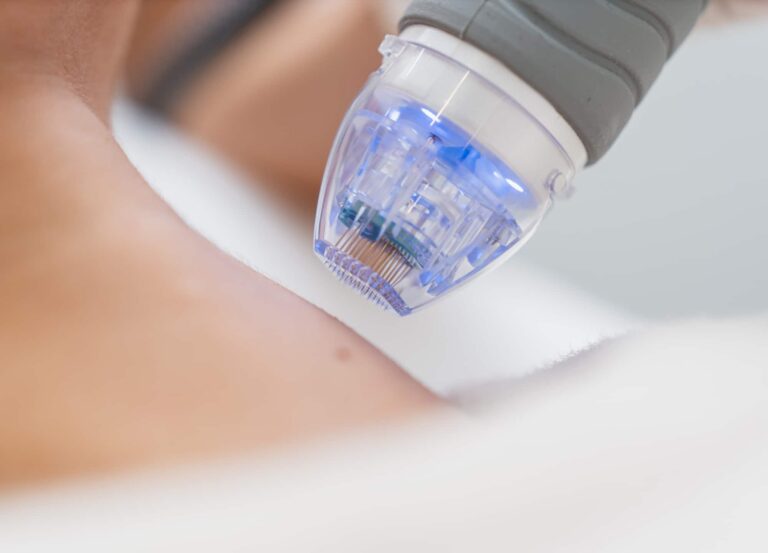Many people refer to their aesthetic surgery experience as a journey. But that description is never more accurate than for those who travel internationally to undergo cosmetic enhancement. Medical tourism, as it’s known, is a booming business. The global market size, which includes elective surgery procedures ranging from knee replacements to dental implants, was estimated by Patients Beyond Borders at up to $92 billion in 2019. Cosmetic surgery represents the largest segment of the medical tourism market, with 60% of medical travelers seeking aesthetic surgeries or treatments.
The key to getting the results you desire when traveling abroad for a cosmetic procedure is to choose a surgeon who has the skills and experience to do safe, aesthetically pleasing work. The good news is that no single country has a lock on excellent plastic surgeons—all you have to do is read the many reviews on RealSelf by patients who had excellent results after getting their passports stamped.
The hitch: Just as it can be more complicated to plan an international vacation, so too can it take more diligence to pull off successful plastic surgery in another country. Researching an international doctor can prove challenging, and the logistics can be tricky. For instance, even with Google translate, language barriers can compromise results (or, at the very least, cause unnecessary stress).
Luckily, the internet is a very powerful tool, says Dr. Ram Kalus, a board-certified plastic surgeon who practices in Charleston, South Carolina, and Tel Aviv, Israel. “If you’re investigating a surgeon and his facility and they don’t have an impressive website with a lot of photos showing the operating room, the recovery room, the overnight suites, and the nursing staff, then you should be cautious.” Doing this type of homework is imperative, he says. “Patients should never subject themselves, their face, or their body to someone they don’t know—their training, capability, skill set.”
“I see a lot of patients who’ve had their surgery in other countries who need a revision because they’re not happy with their results,” says Dr. Erika Sato, a board-certified plastic surgeon in Houston. One factor, she says, is that some countries don’t have any cutoffs for safety. “They operate on higher BMI patients, do longer cases—12 hours on the table [versus the recommended six hours or less] because you try to do too much.”
Higher rates of complications and infections can also be found in countries that have lower standards of care (for example, not administering IV antibiotics for any surgical procedure) and less rigorous sterility practices than the U.S.
If you’re considering plastic surgery abroad, here’s how to make a safe choice when choosing an international doctor.
Seek out a qualified, board-certified surgeon
It can take more legwork to verify the training and experience of an international surgeon, but for the sake of your health and appearance, you’ll want to go the extra mile. “Training in other countries is not the same as it is in the U.S. or other highly developed countries,” notes Dr. Sato. “In some countries, surgical training is a year, which is standard for that country. Here, it’s six to eight years. It’s important to be familiar with requirements.”
In addition to medical school, prospective surgeons should have specific training in cosmetic surgery procedures through an accredited plastic surgery residency program and/or fellowship. Any surgeon you’re vetting should proudly feature this information on their website and should be happy to answer any questions you have about these credentials.
Ideally, potential surgeons should also be board-certified by a specialty board. Though not legally required in order to be a plastic surgeon, board certification is an extra step that doctors choose to take, to demonstrate that they know the latest advancements in their specialty, to practice at the top of their profession, and to deliver high-quality care to their patients.
Becoming board-certified is a rigorous process. “The most rigorous standards and process for board certification tend to be the United States, Canada, most countries of the European Union, Israel, Australia, and South Africa,” says Dr. Kalus. For instance, in the U.S. and Canada, it requires at least nine years of surgical and plastic surgery residency training. Board certification in Mexico requires three years of general surgery training and three or four years of plastic surgery training. Other countries, especially less developed countries, have much more relaxed standards.
Some surgeons, but far from all, who operate outside the U.S. are certified by specialty American medical boards that are approved by the American Board of Medical Specialties (ABMS), including the American Board of Plastic Surgery (ABPS), the American Board of Facial Plastic & Reconstructive Surgery, and the American Board of Otolaryngology, or comparable boards in Canada, the U.K., and Australia—and you can check their board certification online.
However, because there’s no universal standardized set of curricula required to become a surgeon and not all countries have their own established plastic surgery medical board, it can be extremely difficult to gauge the experience level of your surgeon on your own—as well as to accurately determine if they’re qualified to perform your surgery, Dr. Kalus points out.
To make the process of choosing an international provider less daunting, RealSelf has done a lot of the heavy lifting. As part of its professional policies, professional participation in RealSelf is strictly aligned with board certification. What this means is that all the providers on the site must have relevant board certification from ABMS or other recognized board certifications approved by RealSelf’s medical advisory board. This includes plastic surgeons, facial plastic surgeons, otolaryngologists, dermatologists, dermatologic surgeons, oral and maxillofacial surgeons, and oculoplastic or oculofacial surgeons. In addition to verifying board memberships, RealSelf checks a provider’s education and medical license, to be sure it’s valid. This can be a real lifesaver, since surgeons can lose their licenses in one country and set up shop in another, Dr. Sato notes.
To start your research, check out the RealSelf Doctor Finder. RealSelf has 768 doctors outside the U.S., from more than 30 countries around the world. This tool shows only doctors or other providers with the appropriate board certification to safely perform the procedure you specify in your search. Board certifications, society memberships, and fellowships are listed in the About section of each doctor’s RealSelf profile. Keep in mind that societies—such as the American Society of Plastic Surgeons (ASPS) and the Aesthetic Society, whose membership is certified by the ABPS—hold their members to high standards for training, experience, safety protocols, and ethics, no matter what country they operate in. It’s a real plus when surgeons are members of these organizations.
The International Society of Aesthetic Plastic Surgery (ISAPS) is another good resource for vetting international providers. Because regulations, training, and certification processes vary among countries, ISAPS—with around 4,000 members in more than 100 countries—developed a standardized screening process to ensure members are trained, experienced, and qualified. To be a member, a surgeon must be a board-certified plastic surgeon (or the equivalent), a member in good standing of their country’s national plastic surgery organization, and an actively practicing surgeon for at least three years.
“The plastic surgeons who belong to organizations like ASPS, ASAPS [The American Society for Aesthetic Plastic Surgery], and ISAPS are not all cut from the same cloth. But we all, hopefully, have very similar philosophical mindsets about first and foremost, do no harm, keep the patient safe and protected, and deliver the highest quality of care,” says Dr. Kalus. Most countries and even continents have a national plastic surgery society; surgeons should be members in good standing. Some examples include the European Association of Plastic Surgeons, which lists members from 28 countries (including some from outside Europe, like Israel, Japan, Brazil, Canada, and the U.S.), the International Board for Certification in Facial Plastic and Reconstructive Surgery, the Australian Society of Plastic Surgeons, the Mexican Association of Plastic, Aesthetic, and Reconstructive Surgery, and the Brazilian Society of Plastic Surgery. Membership in these organizations is often by invitation and granted to surgeons only after extensive screening, and not being a member can be a red flag.
Choose someone experienced in the procedure you’re after
It’s obvious but true: experience counts. The more times a surgeon performs a procedure, the more opportunity they have to refine and perfect their technique—so they can likely deliver better results. They’ll probably also know how to minimize risks and resolve complications better than a less experienced surgeon. If a surgeon specializes in particular procedures, your procedure type should be in their “top three.”
Ask prospective surgeons how many procedures of the type you’re considering they’ve performed in their career. How many do they perform a week? There’s no magic number that makes someone experienced, but knowing that someone regularly performs a procedure (even once a week versus a handful a year) will give you a better sense of their expertise and confidence in their skills.
Check that the surgical facility is accredited or certified
When you ask where the surgery will be performed, you want to hear that it will be done in a hospital, an outpatient surgery center, or an office-based operating room that is internationally accredited. Accredited facilities have the staff, training, and equipment necessary to respond to emergencies, so you’ll be safe in case of a problem.
Look for certification from Joint Commission International (JCI), the American Association for Accreditation for Ambulatory Surgery Facilities International (AAAASFI), DNV International Accreditation for Hospitals, the International Society for Quality in Healthcare, or Acreditas Global (the international branch of the Accreditation Association for Ambulatory Health Care).
Even if the surgery is going to be performed in an ambulatory surgery center or office-based OR, your plastic surgeon should have hospital privileges to perform any procedure that you’re considering—so be sure to ask if they do. Having privileges to admit patients and operate at a reputable hospital means the surgeon’s performance, background, and experience are under review by their peers and colleagues—and that should give you peace of mind. A doctor operating without having hospital privileges isn’t subject to the same degree of peer review. And if a complication ensues, they may not be able to coordinate your care, should you need admission to a hospital or subsequent treatment there.
In addition to where you’re having the surgery, you’ll want to inquire about the credentials of the anesthesiologist. The anesthesia component is critical to a safe and comfortable surgical experience. A board-certified anesthesiologist can administer general anesthesia or local anesthesia paired with sedation. Find out if the surgeons you’re considering have a board-certified anesthesiologist in the operating room for the duration of surgery.
Look for someone whose work you like
Many plastic surgeons describe themselves as artists—and it’s true that, in addition to expert knowledge and meticulous technique, every surgeon has their own surgical style. And if their artistic ability doesn’t line up with your aesthetic vision (say, they’re more likely to deliver a radical transformation than the natural refinement you’re after), they’re probably not a good fit for you.
“Even with board certification, not all the surgeons will deliver the same quality results, since, in plastic surgery, artistic sense, surgical technique, and dedication are very important factors in the results,” says Dr. Juan Carlos Fuentes, a board-certified plastic surgeon in Tijuana, Mexico.
He recommends checking before and after photos of the surgery you’re interested in “so that you can have an idea about the type of results your surgeon can deliver and if they’re good enough for you.”
When looking at photos, ask the doctor to show you his real work on a similar feature—say, a prominent bump on the nose or a sagging neck, suggests Dr. Cem Payasli, a board-certified plastic surgeon in Istanbul, Turkey. Looking at photos of patients who are close to your age and have characteristics or conditions similar to your own can give you a more accurate idea of your own potential results. When viewing photos, see how the results match your expectations for a procedure, and look for consistency in surgery results—particularly for the procedure you’re considering.
Feel a connection
You want a surgeon with “great hands,” who’s a master in the OR. But you also want someone you like and trust. “You and a surgeon have to have a good rapport, says Dr. Sohail Akhtar, a board-certified plastic surgeon in Manchester, England. “This is essential, since you’re both in this together.” Dr. Payasli agrees. “The patient and the doctor are one team, on which the end result depends,” he says.
You need to have open and easy communication with your surgeon—and hopefully, this includes (literally) speaking the same language (more on that later). Because all types of surgery involve the possibility of complications, it’s important to be comfortable with your surgeon (and their support team) in case something goes wrong.
Pay attention to their bedside manner: You shouldn’t feel pressured, rushed, or in any way discounted during the process. You want a doctor who takes pride in spending as much time as necessary with you to answer all of your questions thoughtfully and thoroughly and to understand your aesthetic goals before constructing a surgical plan together. That way, you can be confident about moving forward on your surgical journey—and they can perform the best possible surgery for you.
“It’s good when patients question things,” says Dr. Ozge Ergun, a board-certified plastic surgeon in Istanbul, Turkey. “Patients are not doctors—they need to be told things so they’re clear on every detail. I don’t want the patient to say after surgery, ‘I wasn’t expecting that there would be a scar like this.’” Sometimes when he senses that patients aren’t ready for surgery, he advises them to do more research. “We never lose a patient because of this,” he says. “They’ll see other doctors, but they usually come back and say, ‘You were honest, and now I feel comfortable proceeding with you.’”
Of course, it’s ideal for you to be able to communicate with your surgeon (and their staff) in your primary language—too much can be missed or get lost in translation. One RealSelf member who had surgery in Mexico reported that she’d “go back for another procedure, but this time I’d be more vocal [when things, like her lip filler, didn’t go as planned]. If you can speak Spanish, it’s definitely a plus. I can speak a little and just listened, mostly.” As the international default language, many surgeons across the world speak fluent English; it’s a requirement for many medical schools. If you’re concerned that you won’t be able to communicate well enough so that you and your surgeon understand each other, be sure to download a language translation app on your phone or consider hiring a translator.
Find someone with a follow-up plan
One of the biggest hurdles with surgery that’s far away from home is a lack of follow-up. “The problem with medical tourism is that it’s itinerant medicine,” says Dr. Kalus. “After you have your surgery and return home, you and your doctor are no longer connected.” It’s this lack of support that often lands many medical tourists in the emergency room.
There are ways to stay connected—many surgeons follow up with patients through telemedicine at regular intervals. But it’s imperative that you also have ongoing access to your surgeon, should a problem arise.
“80% of the issues that can happen after surgery occur in the first 10–15 days,” Dr. Arenas reports. Since many patients return home after 10 days to two weeks, that means it’s very possible that you might experience a post-op complication. “You need to be aware that there is that chance, that if you need some help, you will need to come back,” Dr. Arenas cautions. “If it’s something that needs to be cared for, I want to be the one who takes care of you. We started together, and we need to finish together.”
Since a return trip might not be logistically or financially feasible, your surgeon should ideally also find a plastic surgeon or other medical professional in your local area who might be willing to see you, to treat any complications or issues that arise.
Just be sure that a plan for any care you need at home is solidified ahead of time. “The postoperative arrangements need to be watertight,” says Dr. Akhtar. “If you were to develop complications when you were back home, who would you go to see, to be assessed? All these factors need to be taken into consideration.”











